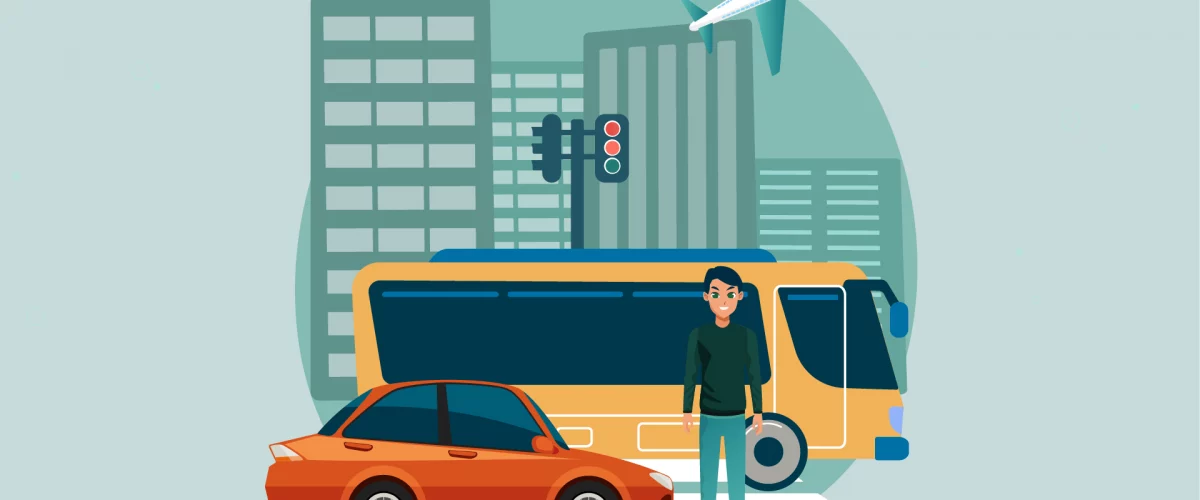The summer holiday season is finally here, but have you ever experienced dry, red or itchy eyes while travelling?
Travelling can be a factor in dry eye. Air conditioning, contact lenses, incomplete blinking… there are multiple reasons why your eyes dry out when travelling.
Whether you’re travelling by car, train or plane, follow our advice to limit the effects of dry eye.
Direct air con away from your eyes
Air conditioning is one of the causes of dry eye. Tears are composed of water and oil. The aqueous layer hydrates, nourishes and oxygenates the cornea.
In addition, tears form a protective barrier for the eye. Air conditioning increases tear evaporation and the aqueous layer becomes less and less thick. As a result, your eyes dry out.
It is therefore important to direct air con away from your eyes and even keep it at a low level.
Use artificial tears
To prevent tear evaporation, we recommend using artificial tears. It is best to put them in before hitting the road.
They come in the form of eye drops and will compensate for any lack of tears. This will keep your eyes hydrated and prevent unpleasant symptoms.
Take a break
Taking a break is the best thing you can do for your eyes. During this rest period, you can perform blinking exercises.
When we’re focused on something, we tend to blink less, which dries out the eyes.
Blinking spreads out the tear film and therefore hydrates the eyes. Below is an example of an exercise you can do:
- Close your eyes and count to three
- Squeeze your eyelids tightly shut and count to three
- Open your eyes and count to three
To watch our tutorial, click here.
Stay well hydrated
It’s no secret that hydration is essential for the human body. It is important to know that the tear film is made up of 98% water.
If the body is not sufficiently hydrated, it will dip into its reserves. This means that the body must be kept hydrated so that the water in the tear film can keep the eyes hydrated as well.
The recommended amount to drink is 1.5 to 2 litres of water per day, but this figure of course needs to be adjusted to the heat and your activities.
Opt for glasses
Contact lenses are a factor in dry eye. Since they are placed onto the tear film, the cornea has difficulty capturing the oxygen it needs, meaning it uses more tears to stay hydrated.
As tears are absorbed, the eyes become less hydrated, causing dry eye.
In addition, if your lenses are not suitable for the shape of your cornea, if you use poor quality cleaning products or if you don’t clean them regularly, the symptoms of dry eye may increase.
To reduce the risk, it is best to swap your contact lenses for glasses when travelling.
Wear sunglasses
In summer, the light tends to be brighter and can cause glare. People with dry eyes can be sensitive to light. To protect your eyes from glare as well as from UV rays, we recommend you wear sunglasses. It is important to choose the right ones, so here are a few tips.
The darkness of sunglasses is not an indication of how well they filter sun light. Dark glass will reduce glare but may not filter out UV rays. It is the quality of the glasses and the material used to make them that protects our eyes from UV rays.
Also pay attention to the protection factor. The scale ranges from 0 to 4, 0 being the lowest category and 4 the highest.
Categories 0 and 1 should be avoided; 2 does not protect you from all UV rays but is suitable for the end of the day or cloudy weather. Category 3 is perfect for the beach, sea or mountains. Category 4 lenses with 100% UV protection are recommended for activities involving exceptional levels of brightness. These glasses cannot be used when driving, as you won’t be able to see in a tunnel!
You will find more advice in our news item on “dry eye and preventive care”.
IF THE PROBLEM PERSISTS, SEE AN OPHTHALMOLOGIST.





